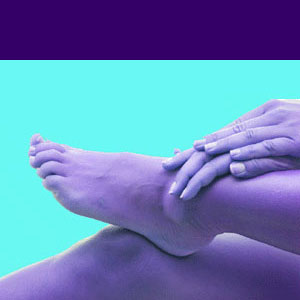
Repetitive strain injury (RSI) is a growing diagnosis within the medical professions that is used to explain recurrent or chronic pain in virtually any area of the body. Other common names for RSI include CTD (cumulative trauma disorder), repetitive stress syndrome and occupational overuse syndrome. Most often, this diagnosis is made in relation to a person’s occupation or regularly occurring leisure activities.
RSI is one of the conditions most often diagnosed without much supportive evidence of any anatomical injury having occurred. In other cases, diagnostic imaging will produce evidence of joint or tissue degeneration, but the patient may or may not be informed that these changes are normal and expected in all typical adult anatomies.
RSI is a very controversial topic in modern medicine. While many doctors have become filthy rich treating it, there is a growing vocal minority who challenges the very existence of the condition on the grounds of plausible scientific fact that is not undermined by financial motivations.
What is Repetitive Strain Injury?
RSI is actually the heading of a category of conditions affecting almost every area of the human anatomy. Many of these conditions are idiopathic in nature, but have been grouped together, nonetheless, as is common in the medical industry.
Most RSI is theorized to be caused by repetitive stress, overuse and constant motion on the muscles, ligaments, bones and joints in a particular bodily region. All this use and abuse is thought to wear away the body’s nature protective mechanisms, leading to structural damage and general regional degeneration.
As opposed to singular injury, RSI is theorized to consist of many repetitive small traumas to the area incurred over time. The recurrent damage may cause pain through the body’s inability to heal the area completely before a new injury occurs or through the theorized existence of scar tissue which may become symptomatic unto itself.
Types of RSI
Most RSI conditions are linked to a person’s job function or extracurricular activities. A great number of professions have been included in groups considered susceptible to RSI including: assembly and factory workers, computer workers and typists, musicians, office workers, cash register operators and anyone else who performs repetitive motions throughout their workday. Some of the most common sub-divisions of RSI include:
Carpal tunnel syndrome, reflex sympathetic dystrophy, a wide range of tendonitis conditions, thoracic outlet syndrome, certain types of arthritis, and general elbow, shoulder, wrist or hand pain. Less commonly, RSI can include lower body symptoms, such as leg pain and foot pain theorized to come from overuse or recurrent strain.
Repetitive Strain Injury Interventions
RSI is an epidemic in the healthcare system. According to some opportunistic doctors, it seems that almost any activity can and will cause RSI, leading to general or specific functional disability. Insurance and disability benefits for RSI are at an all time high, which certainly helps to escalate and perpetuate symptoms in diagnosed patients.
Of course, there are forms of RSI which are structurally-based, however many are simple misdiagnosed psychologically-induced pain syndromes. RSI is commonly caused by primary gain, but can also sometimes be the result of secondary gain, especially in disgruntled workers.
I have seen the incidence of RSI diagnosis rise steadily year by year and have been particularly sickened by the medical mismanagement of this seeming disorder. While it is impossible to generalize about every case, this is the typical version of RSI I see most often:
Most patients are given drugs and physical therapy, which rarely resolve the complaint. Injection therapy and surgery are often performed, relieving some or most of the pain short term. Not long after treatment, the pain either returns anew or more often, moves to a related or even unrelated bodily location and the entire process begins again. This should be no surprise, given the mistaken structural explanations for most RSI scenarios and the underlying symptom imperative which will not be denied.
There are many excellent resources detailing the use of knowledge therapy treatment for RSI conditions. Generally, patients who have not found lasting relief from traditional medical practices might be wise to consider this alternative path, since there is truly nothing to lose and possible symptomatic resolution to gain.
Back Pain > Psychologically Induced Pain Syndromes > Repetitive Strain Injury





